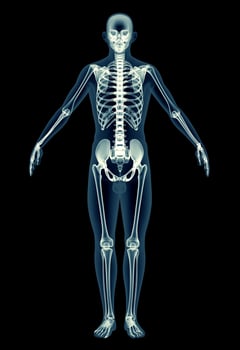Published on: December 21, 2015
 If you have questions about musculoskeletal impairment disability claims, we can help. We will discuss your condition, SSA eligibility requirements, and help you file a claim. Call us today to get started.
If you have questions about musculoskeletal impairment disability claims, we can help. We will discuss your condition, SSA eligibility requirements, and help you file a claim. Call us today to get started.
Impairment Categories
There are many conditions that fall under the SSA’s list of eligible conditions for musculoskeletal impairment disability claims. Musculoskeletal impairments may be the result of infectious, inflammatory, or degenerative conditions, traumatic or developmental events, or vascular, neoplastic or toxic/metabolic diseases. Common musculoskeletal impairment disability claims are from impairments in one of these categories:
- Major dysfunction of a joint(s) due to any cause
- Reconstructive surgery or surgical arthrodesis of a major weight-bearing joint
- Disorders of the spine
- Amputation (due to any cause)
- Fracture of the femur, tibia, pelvis, or one or more of the tarsal bones
- Fracture of an upper extremity
- Soft tissue injury (e.g., burns)
Eligibility Requirements
To be eligible for disability benefits, a musculoskeletal impairment disability claims must prove that the condition has a severe impact on your life. The condition itself may cause a loss of function or inability to walk, and may prevent you working. Pain caused by the impairment may also be considered for its effects on you, as can the side effects of necessary medication for the impairment. The SSA will want to know if you are currently working, if you can no longer do the work you used to do, and if there is any other work that you can do instead. To be eligible for disability benefits, the impairment must prevent you from being able to work for at least 12 months.
Evidence
The SSA will evaluate musculoskeletal impairment disability claims to see if they meet specific eligibility requirements. Diagnoses and evaluations of musculoskeletal impairments should include specific evidence relevant to the condition such as detailed descriptions of the joints, including ranges of motion, condition of the musculature, sensory or reflex changes, circulatory deficits, and lab findings. Specific medical imaging such as x-rays, CAT scans and MRIs will also serve as evidence for musculoskeletal impairment disability claims.
Call Disability Experts of Florida
If you have questions about musculoskeletal impairment disability claims, don’t hesitate to contact Disability Experts of Florida. A disability advocate is waiting to discuss your claim. Our knowledgeable staff of disability experts can help you navigate the confusing claims process and answer any questions you have along the way. Let us help you with your musculoskeletal impairment disability claims.

